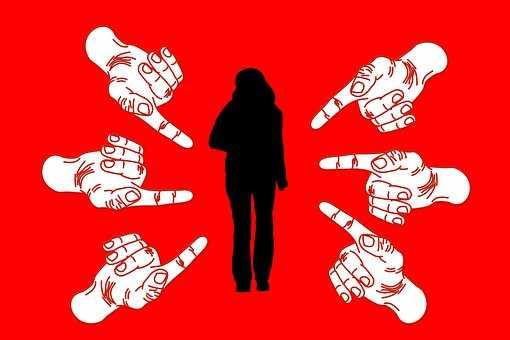Productivity Shame: How To Stop Feeling Like You Haven't Done 'Enough'
Curated from: blog.doist.com
Ideas, facts & insights covering these topics:
9 ideas
·45K reads
125
Explore the World's Best Ideas
Join today and uncover 100+ curated journeys from 50+ topics. Unlock access to our mobile app with extensive features.
Productivity Shame
Work is never finished, and we are unable to disconnect from it, causing us to experience productivity shame, impacting our happiness and creativity.
The modern working profiles (like knowledge work and remote work) do not have strict guidelines on a day’s productivity or any clear deliverables. It relies on a constant flow of communication, collaboration and multiple switching of context.
1.31K
8.04K reads
The Busyness Paradox: Addicted To Being Busy
- Personal productivity is not about all-round efficiency, and it is wrong to think about your input as that of a machine in a factory unit.
- This is further complicated by our mistaken assumption that being in demand means that we are doing a splendid job.
- We blur our all boundaries between our work and personal life and every minute of the day is to be kept busy as we rush to attend every meeting, cross out every task from the to-do list or to answer every email that we get.
1.26K
5.34K reads
Completion Bias
Our brain starts to favour small tasks that give a false impression of productivity (woohoo! I just sent out fifty emails!) while we neglect the large, complex but meaningful tasks.
This is known as the completion bias.
1.42K
5.79K reads
Changing How We Understand Productivity
We are not a factory pumping out products. Our constant switching of context, and checking our smartphone notifications/email has a huge impact on our productivity, focus and our ability to get things done. We are rarely productive in the real sense but feel productive doing pseudo-work all the time.
Productivity is not getting more stuff done every day, but getting important stuff done in a consistent manner.
1.57K
5.19K reads
The Progress Principle
If we don’t see enough progress by the end of the day, it feels (to us or our superiors) like we haven’t done enough.
Apart from the completion bias, where our brain seems hardwired to wanting to finish the given tasks, we are also having another cognitive bias called the planning fallacy, in which the brain is unable to estimate how long any task would take.
The answer is The Progress Principle, the art of reducing big, audacious goals into small chunks of doable and easily trackable tasks that provide us with a sense of accomplishment.
1.4K
4.38K reads
The Motivation Trap
Our self-motivation and excitement have a relatively short life span, and while we want to be motivated before we start something, it is only possible once we have begun. This paradox is called the Motivation Trap and basically implies that action precedes motivation and not the other way round.
The trick is to to create systems and tools that get things done and sets us up for future success.
1.45K
4.47K reads
Getting Things Done (GTD)
Getting Things Done is a productivity system that helps us capture our work in one place and manage where our attention is going to be. The five steps of GTD are:
- Capturing one’s ideas in a tool which is an app of your choice.
- Clarifying each task to its next most easy step that reduces any friction.
- Organizing each task by priority level and due date.
- Review and reflect on your to-do list.
- Engage yourself and get in action mode, implementing the list.
1.44K
3.99K reads
Learning To Disconnect From Work
There are four elements that need to be done as a ritual to disconnect from work:
- Create a shutdown ritual each evening.
- Physically separate from your laptop and/or smartphone if possible.
- Take some time to relax and reflect on the day, just with yourself.
- Take up a hobby or something that interests you outside of work.
1.36K
3.82K reads
A Threshold Of Success
Take a good look at your life, and the goals you have set, and find out that sweet spot, the threshold of success that you think is ‘enough’ for you to feel productive and successful.
Example: At Google, projects have multiple objectives but instead of an all-or-nothing situation, they have Objective and Key Results (OKRs) which let them set a success threshold (usually 60 to 70 per cent) so that they feel challenged and motivated and at the same time do not feel like a failure.
1.23K
3.95K reads
IDEAS CURATED BY
Holden Y.'s ideas are part of this journey:
Learn more about timemanagement with this collection
The importance of perseverance
How to embrace failure as a learning opportunity
The power of innovation and creativity
Related collections
Similar ideas
3 ideas
Productivity shame: Why you never feel like you've done "enough"
blog.rescuetime.com
10 ideas
11 ideas
How to deal with the feeling that there's "never enough time"
blog.rescuetime.com
Read & Learn
20x Faster
without
deepstash
with
deepstash
with
deepstash
Personalized microlearning
—
100+ Learning Journeys
—
Access to 200,000+ ideas
—
Access to the mobile app
—
Unlimited idea saving
—
—
Unlimited history
—
—
Unlimited listening to ideas
—
—
Downloading & offline access
—
—
Supercharge your mind with one idea per day
Enter your email and spend 1 minute every day to learn something new.
I agree to receive email updates

